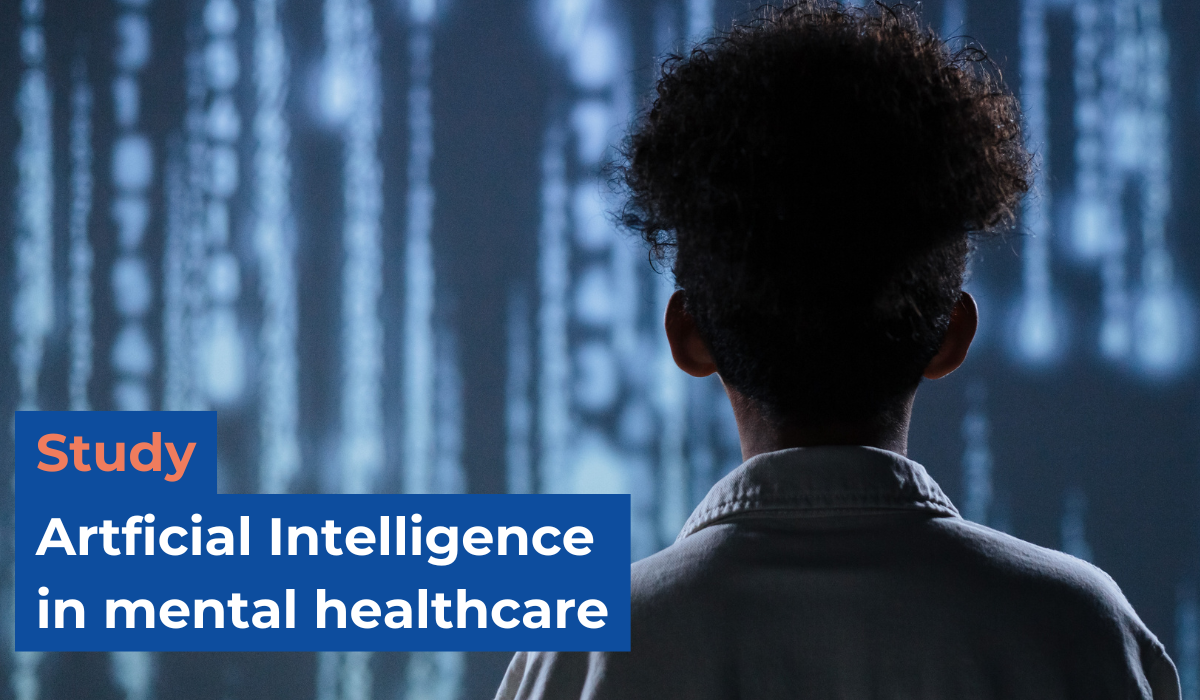Mental Health Europe launches a study on Artificial Intelligence in mental healthcare
This Mental Health Europe study – co-authored with Piers Gooding* and Hannah van Kolfschooten**- targets policymakers, service providers and any other stakeholder interested in the applications and impact of AI in mental healthcare.
This study explores the opportunities, risks, and ethical considerations surrounding the use of artificial intelligence (AI) systems in mental healthcare and provides recommendations for their responsible implementation and regulation.
In mental healthcare, AI systems are used in diverse ways, from administrative tasks to communication platforms, professional decision support, digital therapies and patient monitoring.
AI systems offer significant potential benefits, including improved accessibility to mental health support, reducing administrative burdens in healthcare systems. Proponents also advance AI for personalising treatments, improving diagnostic accuracy, and supporting timely interventions.
However, AI systems in mental health also pose serious risks. At the individual level, concerns include safety risks, privacy violations and inadequate informed consent. Broader challenges include strengthening inequalities or creating new ones, oversurveillance, reinforcing individualistic views of mental health, depersonalisation of care, and diverting limited resources.
By highlighting the risks specific to this sector and proposing measures to address them, this study lays the foundation for critical assessment of whether the recently adopted AI Act is fit for purpose in the case of mental healthcare and how potential gaps can be addressed by policymakers.
It is argued that AI tools need to be developed with ethics, inclusivity, accuracy, safety and the genuine needs of end users in mind. Possible solutions mainly include robust regulation and oversight, transparency and explainability, as well as human rights-centric and co-creation approaches. The active participation and leadership of the most affected communities – people with lived experience – should be regarded as a fundamental ethical and political principle guiding all discussions and decisions on digitalisation and mental health. Ensuring that they have an equal voice in shaping policies and innovation is essential to achieving fair and balanced outcomes and preventing the deepening of health inequalities in society.
Read the study now
The study is also available in multiple languages
*Associate Professor, La Trobe Law School, La Trobe University.
** Lecturer-researcher, Amsterdam Law School, University of Amsterdam, and AI consultant, Health Action International

Stay connected
Get our latest news, personal stories, research articles, and job opportunities.

